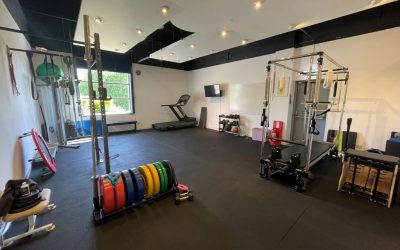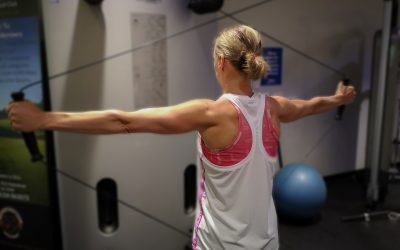The most common causes of running-based injuries are overuse, previous injury and biomechanics. Our running analysis will identify yours.
‘Overuse ‘can mean increases in mileage, frequency or intensity that are too large or too rapid for the system to deal with, resulting in breakdown and injury. This can also include inadequate recovery time between sessions.
Whether you’re a professional athlete or you’ve just started a couch to 5k training plan, correcting your form will only work wonders for you and your running. Whatever level you are, with our running analysis you’ll be less likely to pick up an injury and you will see a noticeable difference in your performance.
Previous injury, particularly to muscles, is a risk factor for further injury. This can be caused by movement patterns that place higher stresses on certain structures. Alternatively, previous injury can lead to changes in movement patterns or compensations that may increase the likelihood of further injury.
By Using state of the art GAIT analysis technology, balance testing and treadmill analysis we can analyse you’re running patterns. We do this through high speed measurement and high sensor resolution which offers a detailed view of the pressure distribution and foot movement. Once we have measured the pressure points in your feet, we can start to collect personal and bespoke data. We can then use this data to put a personalised plan in place to correct your form and help you sty injury free.
what to expect
further information about visiting us for a physiotherapy session, from what we treat to what you should expect and how to prepare can be found below.
what physiotherapy helps?
Our range of services and treatments is huge given the experience our staff have in their respective fields. We’ve seen it all!
To give you an idea of the range of physio treatments we offer, we have put together a list of the most common issues we deal with on a daily basis:
Back Pain
Neck Pain
Knee Injuries
Shoulder Injuries
Sports Related Injuries
How to prepare for a session
Aside from a positive attitude, you should bring the following items to one of our physiotherapy sessions:
Suitable Clothing
e.g; Shorts, Strappy top, Sportswear etc.
Glasses
(if you require them to read forms)
Medical History
Please remember to inform us of any prior or ongoing medical problems that you have even if you think they seem unrelated to the pain you are seeking treatment for.
our aim here at summit is to keep our clients relaxed, and for them to enjoy their time with us. out staff are friendly and more than happy to answer any questions you may have on your condition and treatment.
Each new client/condition will have an initial consultation where one of our skilled clinicians will take a detailed and confidential history and physical assessment. Then, using Summit’s education board, we will explain why the condition has occurred, allowing you to properly understand the cause of your pain/problem.
From here a relevant, evidence-based and up-to-date treatment plan can be put into action.
You will be given a home exercise programme (HEP) at the end of the session, in conjunction with your treatment. Not only will this maximise the benefits of the treatment and, it will allow you to self-manage your symptoms where possible.
Summit also promotes positive lifestyle behaviours by teaching individuals to self-manage their condition, which improves confidence, sense of wellbeing and quality of life.
With these new acquired skills, we can give you a long-term solution so you can prevent reoccurrence of your condition and return to activity with confidence.
Summit physiotherapy is committed to its clients and expects commitment from them in return. All of our clients must realise that their rehabilitation and recovery requires a team effort.
Above all, we are here to help you get better and give you the confidence to embrace the treatment. A happy client means a quicker recovery, and that’s what we provide here at Summit.
ready to book an appointment?
It’s never been easier to book a session with us, just click below and choose what type of appointment, which clinic and which physiotherapists you’d like.
CHECK OUT SOME OF OUR LATEST BLOGS
Post-Surgical Physiotherapy: Restoring Function for you
After going through the process of surgical intervention for an injury, the most appropriate rehabilitation and physiotherapy is vital for restoring function and regaining independence.
Physiotherapy Techniques: Finding the Right Approach For You
Physiotherapy techniques are a diverse range of approaches that can help individuals find relief from various physical ailments. Whether you are recovering from an injury, managing a chronic condition, or seeking to improve your overall mobility and function, there are many different techniques that physiotherapists can utilise to address your specific needs.
How Strengthening Exercises Optimise Recovery and Performance
Strengthening exercises play a crucial role in optimising recovery and performance for individuals engaged in physical activities, whether it be athletes, fitness enthusiasts, or individuals undergoing rehabilitation.
Musculoskeletal Health: The importance of proper footwear
Our feet are often overlooked and underappreciated when it comes to our overall health and well-being. However, these remarkable structures play a crucial role in supporting our entire musculoskeletal system, forming the foundation upon which our bodies rely.
Prescribing Movement: How Exercise Therapy Complements Physiotherapy
Prescribing movement through exercise therapy is a fundamental aspect of physiotherapy. In this blog we discuss the vital role of tailored exercise and how it is key in the success of a clients progression and recovery.
8 Ways Physiotherapy Can Help Manage Chronic Pain
Chronic pain is unfortunately a common condition we see people suffering with and can often be poorly understood. In this blog we discuss chronic pain, what it is and the ways in which physiotherapy can help to manage it.
Manual Labour: How to protect your body from injury
Injuries not only cause physical pain and discomfort but can also lead to time off work, decreased productivity, and financial burdens. By prioritising health and safety, manual labourers can minimise the likelihood of accidents and injuries, ensuring their ability to continue working and supporting themselves and their families.
ACL Rehabilitation: The Role of Physiotherapy
The ACL is commonly injured during sports that require a quick change of direction, sudden stop, jumping, or landing involved. Here we discuss physiotherapy and it’s vital role in ACL rehabilitation.
Ergonomics and Workplace Wellness
Physiotherapy plays a crucial role in addressing shoulder and back pain among office workers. Physiotherapists provide personalised assessments, treatments, and exercises to alleviate pain, improve posture, and prevent future issues. They help individuals maintain their physical well-being in sedentary office environments, promoting comfort, productivity, and long-term health.
Wrightington
Wrightington Hotel
& Country Club,
Wigan,
WN6 9PB
Chorley
David Lloyd Health Club,
Moss Lane,
PR6 8AB
get in touch...
Our network of clinics is based in Lancashire & Greater manchester and is run by our team of dedicated practitioners.
The address details for each clinic are listed below for appointments, for general enquiries or anything you'd like to know prior to booking, please use the contact form or email us and we'll be in touch ASAP!
Alternatively, we can be reached on
SUMMIT MANCHESTER
Urban Reform, 106 Temperance Street, Piccadilly, Manchester, M12 6HR
SUMMIT WRIGHTINGTON
Wrightington Hotel & Country Club, Wigan, WN6 9PB
SUMMIT CHORLEY
David Lloyd Health Club, Moss Lane, PR6 8AB








